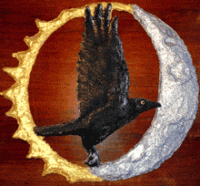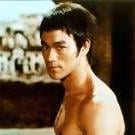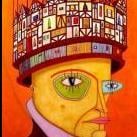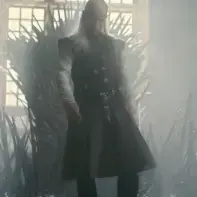-
Posts
27,898 -
Joined
-
Last visited
About Lord Varys
- Birthday 11/25/1982
Profile Information
- Most Devious 'Man' In The Seven Kingdoms
-
Gender
Male
-
Location
Definitely somewhere in King's Landing
Recent Profile Visitors
Lord Varys's Achievements

Council Member (8/8)
-
What else should she be doing? With Jace not exactly being in he show for long she could no possibly have a big role unless hey were inventing stuff left and right. Cutting Nettles can make sense if they deem her Daemon's daughter - or if George told them point black that she is his daughter rather than an implausible lover. Daemon has two girls already, and there is literally no reason to give the character a third only for 'family time' scenes. That would be surprising as the character is rather important. No chance that the Gullet is cut in light of the build-up for that since season 1 - and the confirmed build-up for it in season 2.
-

Star Trek: I miss Hemmer (spoilers)
Lord Varys replied to Ser Scot A Ellison's topic in Entertainment
We talk a pretty advanced society here, one who apparently has the tech to harvest 'fuel' by crushing planets ... yet you want to believe they are too dumb to, you know, perhaps assume the planets they are crushing are inhabited by creatures like they themselves are? We are not talking about them killing lifeforms they didn't give a damn about but entire planets which could, as they themselves live(d) on a planet, could include all kinds of species similar to themselves. That is just nonsense. If they had portrayed the aliens as beings who just didn't care about 'lesser beings' the plot could have worked to a point ... but they were portrayed as morons who didn't know what their tech did. Once they knew they immediately agreed to stop, find alternatives, etc. That was silly. I do expect the writers of an SF show to think before they write and to try to create believable scenarios. God tech means that is on the table. There could be devices there to destroy all humanoid life, for instance. That we just saw a potential future of crushed ships doesn't mean galactic annihilation is not on the table. -
Doesn't strike me as a huge surprise as the two girls must do more than being absent or under the thumb of a fat castellan who shouldn't boss around royal dragonriders in any case. In the book both Baela and especially Rhaena were wasted characters (until we get to the Regency era) and the show can't repeat that with older girls. Baela can fly back and forth from Dragonstone to Harrenhal, just as Daemon can. It would also not surprise me if we were to see Aegon the Younger as Daemon's squire/page in season 3 or 4 (depending how long he is going to last in the show) as the fact that Daemon and Rhaenyra actually had two sons together should be something Daemon actually cares about. Even more so after Jace and Luke are gone. That would be really weird as there is no indication that Sheepstealer should or would be in the Vale. Of course, Rhaena just leaving the island for the Vale and allowing bastard scum to claim dragons left and right while she already coveted a dragon as early the sixth and seventh episode of season 1 makes little to no sense at all. The smart way to go would have been to move things around and have Rhaena claim the Grey Ghost rather than having him die a pointless death, so she can have a dragon who can die in the Storming of the Dragonpit, during a fighting/attack in the Vale, or even at Tumbleton ... before she eventually gets Morning in the end. But merging Rhaena with Nettles makes literally no sense. On the other side, though, giving Daemon/Rhaenyra/Mysaria the Nettles plot from the book would be a hard sell indeed as this would have to be changed and reworked to the point that it had nothing to do with the source material anyway ... as the jealousy angle would make no sense for either woman there, nor would Daemon throwing away his life to kill Aemond while his wife, son(s), daughters, and lover(s) are still out there. And the chance that this show is ever going to portray Rhaenyra as the raving, bastards-hating lunatic calling for Nettles' head is about zero ... and for good reason, as his is certainly the worst part of FaB.
-
 Ser Scot A Ellison reacted to a post in a topic:
Star Trek: I miss Hemmer (spoilers)
Ser Scot A Ellison reacted to a post in a topic:
Star Trek: I miss Hemmer (spoilers)
-

Star Trek: I miss Hemmer (spoilers)
Lord Varys replied to Ser Scot A Ellison's topic in Entertainment
I do like that, too ... but Discovery last three seasons had arguably a very bad way of doing it with lots of filler episodes and, especially, last season a huge buildup to solve a problem that shouldn't have been real in the first place. I mean, honestly, which highly evolved civilization would treat an entire galaxy as 'uninhabited' or 'devoid of sentient life' in the first place? How stupid to do you have to be to do that? Especially if the entire point of their enterprise is to get some fuel for their devices. We had a huge threat, very complicated contact issues to overcome ... and then the finale didn't exactly deliver. A first contact scenario especially works better in a shorter, more condensed way of story-telling as this would also highlight the fact that the linguistic/technological capabilities of 31st century are more developed - which they would be - than they were back in the 23rd century. The same is true to a lesser degree for the Burn. Or now with the look for 'god tech' which is likely not to really deliver on the true implications of such technology, either. The episode about the time bug was the very definition of a filler episode. The plot didn't advance at all and whatever personal relationship developments we had there could have just as well taken place in an episode advancing the plot. From the very beginning Discovery made the mistake to make pretty much every season about a galaxy destroying threat. Klingon War destroying the Federation, evil tech running amok, chaos caused by the destruction of all fuel, planet-destroying aliens, and now god tech with the potential to destroy everything. This always puts the characters into a position where everything is hanging by a thread, and that definitely also warps or affects normal relationships, making their casual conversations about themselves and their feelings weirder than they would be in a different setting. The kind of pressure you are under when you are trying to save literally everything is quite different from the normal Starfleet service. -

Tolkien 4.0 (A dark and hungry sea lion arises)
Lord Varys replied to Ser Scot A Ellison's topic in Literature
I know how things go down there ... just as I'm sure you understand that the story would be more powerful if the song was heard and did affect the actual decision maker and not some guy merely pretending to be 'the god of the underworld'. If you go back to the original version of the story then Beren is no man but an Elf ... which gives Mandos all the authority he doesn't have in later versions. Tolkien wants to have and eat his cake in many of those stories. He created some pagan gods ... but then they can decide little and less on their own, turning them almost into caricatures. No, of course not. Regardless how exactly the Ring is destroyed - if it is an accident situation, meaning somebody doing something which eventually causes the thing to fall into the chasm then you can easily enough go with a lucky coincidence interpretation. For lucky coincidence equaling 'divine intervention' you need more information about the cosmology of the world we talk about than the narrator of LotR actually gives us. Which is the reason why this story works very well. Sure enough, the flat earth thing works better because it is what the stories rely on. He wrote so much about that that it would be different stories if he were truly changing the entire framework. But it is also true that this is not really a very mature cosmology and he noted that later in life. It seems he was embarrassed by it. Eärendil, of course, remains the core heroic figure of the entire myth cycle. The best hint in that direction is the decision to really have the Elrond from 'The Hobbit' as the Elrond from the LT/Akallbeth texts who is Eärendil's son - and then have Bilbo recite a very long poem about Eärendil. But he is also the one hero whose story was never written in great detail, not even in fragments. And that, I think, is in part due to the great magical nature of his quests, especially, but not only, his eventual transformation into a star but also his wife living as a swan for a time. It was impossible for Tolkien to trying to rewrite (or first properly write out) this story with a changed cosmology in mind. As I said, you can make such a case when you are, say, Tolkien and you think it is all fine and in accordance with Christian tradition to write a lot about Elves and such and invent languages that make your world appear anything but our own world. Even theme-wise I think LotR and the Silmarillion aren't very Christian at heart. The heart of Christianity is the promise of justice and resurrection upon the return of Christ at the end of days. And all that is completely absent from Tolkien's works. In fact, his future ages are all depressing and sad as the victory over evil means the fading of magic and the Elves which lessens the world to no small degree ... whereas Christianity promises the return of Christ in power and glory. Whatever allusion to the final battle Tolkien's myths include, they are more akin to a Ragnarok scenario than what the Bible promises. Also, of course, it is effectively impossible to try to reinterpret the Silmarillion myths as a very long prologue to the Biblical stories. I think that is effectively obvious as there is no actually practiced religion in those stories. The kings give Eru thanks in their annual ritual, but the people as such are not religious. Nobody is, actually. Didn't remember that paragraph earlier, but do now - that is him expression an intention he never realized, namely saving the traditional flat earth cosmology and light myth in the stories by way of moving it from an Elvish tradition (passed to mankind through Aelfwine) to a Númenórean tradition. Nobody is dismissing the entire work. It is more that some readers start to see flaws in the writing when they read it again. Yet it is apparently fine for her to impose her will and power on all the people she doesn't allow to enter her husband's realm? And we are not talking about talks that are not shown. We talk about detailed scenes we get like them meeting Beren and Túrin. Yes, but that makes no sense as he had the authority to do exactly that with Sauron's boss, the guy called Morgoth. Are we to believe Eonwe would have treated Morgoth like Sauron had Morgoth not offered battle but come out of his fortress to submit and say 'Sorry, will be good now, can't you just leave me alone?' Because that is exactly what Sauron seems to have done after Morgoth had lost. Although due to the summary and old account of the War or Wrath we have no clue if Sauron took part in that war - if he did it would be even harder to believe the Eonwe scene as then Sauron would have only yielded after he and his master had been defeated in the field. Sure enough - but to get back to the original point: If they met and saw and interacted with Elves in Middle-earth they should have concluded that the land does not really grant immortality. As Middle-earth is home to mortal and immortal beings alike. -

Tolkien 4.0 (A dark and hungry sea lion arises)
Lord Varys replied to Ser Scot A Ellison's topic in Literature
No, because it is one of many possible interpretations. And that one, in fact, is only one you could reasonably make if you have a lot of information from unfinished and unpublished texts the average reader of the LotR never has. The connection between 'the One' that is mentioned once or twice in the appendices and the Christian god is effectively impossible to make with the obvious impression that the world of the LotR is a fantasy world. And even if one were to conclude that this 'One' might be a creator god somewhat like the Christian god the idea that said god might have a divine plan for his creation laid out in a Music which took place before creation itself would be a bit far-fetched. Why would we assume this One cared what happened to the Ruling Ring? Tolkien himself says that in the MT texts. He looks at his own cosmology - flat earth, weird levels of air, divine beings running around acting as natural forces, etc. and how all that intersects with the plot of the various stories - and he can't keep it up. While Eärendil goes back to a Christian poem ... it is an Old English poem and Tolkien's entire desire was to create the pre-Christian mythology England lacked or lost due to the Norman Conquest. The mythology was originally conceived to include a somewhat Christian god like creator god ... but that was all. The gods working under him were pagan gods and the attempts to turn them more and more into angelic beings doesn't really work. It is also, of course, not exactly in accordance with any tenet of Christian orthodoxy I'm familiar with that, say, the Archangel Gabriel played any role as a sub-creator in the creation of the world. The Valar and especially Melkor are far too powerful than the devil/angels in Christian lore. You introduced the idea that the people of Númenor would reinterpret their own history like one might religious texts/lore. But it is his history, not religion, at least the core part of it. And there are real people in this world who can answer questions about lore. We are not talking religious texts tradition handed down to them, we talk, essentially, living, breathing history. History which, in the end, came to the island not just as Sauron but also earlier as Manwe's messengers and, in the very end, as god's wrath. The past is not the past to the same degree in world where immortal beings and gods walk around. Even if things like the Ainulindale are beyond the world and thus also the knowledge and experience of the Elves ... the link to that ultimate beginning is much closer and more real than any creation myth we have in the real world. My impression of what @Ser Scot A Ellison meant when he talked about his re-reading experience of the Silmarillion is that he realized - like I did during my earlier rereads - that there is a very striking pattern in the myth cycle of characters who should know better act like they don't. It is mostly bad tragedy. Some of the villains do make sense, a character that works reasonably well in the Silmarillion is Maeglin, I think, but especially the tragic noble characters work badly. Worst is the demise of Thingol in any scenario as his divine wife knows or feels every shitty thing that is going to happen, but either can't or won't intervene nor can Thingol bring himself to listen to her. And that is a pretty big problem as Thingol is totally beholden to Melian to protect his kingdom, so even if we were to cite 'patriarchal convention' as the reason why he is making all the choices (and he does, especially when you consult the longest versions of the various tales) ... it is very hard to swallow that anyone would just sit there and meekly watch while her husband ruins the life of their daughter and eventually their own. And that extends to many other things. Saruman and Denethor I mentioned. Another big blunder is Eonwe and Sauron. The former is the commander of the Valinor host defeating Morgoth in the War of Wrath. He has the authority to capture Morgoth himself and drag him back to Valinor in chains ... but when Sauron shows up he just lets him go... Ah, well, those are more propaganda texts as there is plenty of archaeological evidence that the people there actually did worship many deities at that time ... but that's not something the priests and scribes writing those texts liked them to do. But I certainly agree that Aaron agreeing to make the golden calf kind of borders on Pharazôn's stupidity. Gil-galad's realm was larger in those days, so Pelargir would have been also pretty close. The Númenóreans deforested most of Eriador, so there would have been a lot of contacts with the Elves there then. But I also meant Nandor or Avari colonies in other places. Númenor had colonies all over Middle-earth. I don't think so. It seems to have been a matter of natural gifts/talents. Faramir and Denethor are as noble 'common Dúnedain as Aragorn is the very embodiment of a Dúnedain king. Not in the same, but I think if one wanted to add complexity to Pharazôn as a character making him somewhat like Denethor could work fine. Denethor didn't want to live if things changed the way they would have, and Pharazôn could have followed Sauron's advice because he knew death was inevitable and he would rather see his home and people die and burn with him than go alone ... while also, perhaps, hoping against hope that Sauron spoke true and there was a small chance that he could win immortality. That would perhaps still not be the greatest character in fiction, but better than the devil worshipper Tolkien kind of turned him into. Yes, that is the big issue there. Tolkien tried to wiggle out of things there by having the author of the Narn be a mortal man, not Rúmil or Pengolodh who wrote most of the Silmarillion texts, to 'explain' why fate and doom were so prominent there. A heathen man would have had different philosophical and theological views than an Elda. But that doesn't really change anything as the Narn in the almost finished version was the version of the story Tolkien himself wanted to tell, not a sanitized or different version about, say, free will triumphing against all evil. Catholic or not, he was in love with that kind of story. Those were the stories he liked to read, and they were the stories he liked to write. It is also rather striking that he never seemed to have shed the LT idea that Turin's suffering was so great that he was posthumously numbered among the Valar and destined to eventually deal Morgoth the finishing blow in the final battle. That is akin to the glorious dead going to Valhalla or Herakles living on Olympus after his death. -
Oh, that just grew out of the fact that Vaemond is apparently unmarried and without legitimate children in the show. But I'm pretty sure this show won't bother much with the Regency material, so chances are that, for the time being at least, the show audience - or even the show canon - will go with Aegon III and Jaehaera continuing House Targaryen, not Aegon III and Daenaera (and even less so Viserys II and Larra Rogare for obvious reasons).
-

Tolkien 4.0 (A dark and hungry sea lion arises)
Lord Varys replied to Ser Scot A Ellison's topic in Literature
Not sure what you mean there. I'd say Tolkien's interpretation of the Ring's destruction as 'divine intervention' is just one of many as the way he wrote the story can also attribute to Gollum's clumsiness or simply a lucky coincidence. Well, me, of course, as it is my take on the stories. I'm quite sure you won't try to tell me it is a crucial feature of Christian beliefs (or the substance of the average Christian story) that there are Elves and Half-Elves who can choose immortality and who are then going to spend eternity in a literal ship in the sky playing the role of Venus ... rather than, you know, be with his wife and children. The idea that heroes are transformed into stars in the sky is a rather crucial feature of various non-Christian mythologies. You conflate history and religion again. The FA of Middle-earth isn't religion, it is history for the people we talk about. Again, the kings literally wield the sword of Elu Thingol. And all the histories and lore they would have access to are not comparable to religious texts but rather to historical texts. And nobody walks around and claims that a well-attested era of our history only a couple of generations in the past (which is actually the case for the long-lived people we talk about here) was invented or faked. That they started to view things differently than their ancestors is also clear - but the way it is written it makes them appear to be stupid morons as no sane person would end up believing Sauron over the Valar or actually think it was great to worship Morgoth. And the same also goes for the inaction of the Valar and Eldar who effectively did nothing to prevent the tragedy. That is the kind of thing which triggered the whole discussion. Most of those stories are rather, say, badly written tragedies where people actually do walk into the dragon's mouth knowing what they are doing. That effectively goes for all the 'evil' or 'tragic' figures, starting with Melkor (who knows that Eru is in charge and all his efforts are in vain), Feanor, Thingol, Turgon, Túrin, etc. The Fall of Númenor is just one of the most glaring examples, I think. This also includes Sauron in the early SA as well as Saruman and Denethor later. They all know what's right and what's wrong, but they do the bad thing, anyway. For 'reasons' that are rarely, if ever, clear. They were in contact with Gil-galad since Aldarion's time, and certainly would have had contacts with him and his people once they established their colonies. I do agree that Pharazôn wouldn't have cared much about his or Elrond's opinion, but there is a long time of decline there. Thinking a bit about it, the textual history of the Akallabêth shows how Tolkien also failed to truly connect it with the later texts, i.e. LotR. Interactions with Elves mainly/only mean Tol Eressëa in that text when the long history of colonies in Middle-earth would mean that most contacts with the Elves would take place on that continent. It is also rather odd that they never invited any Elves to live with them in days after Aldarion went back to Middle-earth or that the island didn't become a place Eldar going to Tol Eressëa would visit there. Well, Elrond isn't a real person. The way to phrase that issue is that the author failed to portray him in a manner that would make sense due to his family connections. Boromir is clearly lacking the insight his father and brother have ... and Denethor is not tricked by silly stories about Melkor being the good guy, but rather by a magical stone showing him real images in a wrong context. Not to mention that the man is also pissed on a deeply personal level that the returning king will take everything he deems his from him. Senile Pharazôn pulling a Denethor and worshipping Morgoth etc. does make a certain sense as I conceded above ... but an entire people - many of them younger people whose deaths will be decades or even centuries away - following suit not so much. -
Better ask the High Septon what he and his crazed followers want to do to 'devil worshippers'. The point being there is that Stannis burned his own property, not the property of a religion or even other people. He didn't decree that his bannermen on Driftmark, Claw Isle, Massey's Hook, etc. also do burn their own property. That is irrelevant. The point of our discussion is your characterization of R'hllorism as an 'iconoclastic religion', not the real or imagined flaws of this or that follower of that religion. Tywin happens to be an Andal and a lord. Does this mean all Andal lords have their guardsmen rape their minor daughters-in-law? It also has to do with the religion as practiced in that city. The Braavosi red priests obviously have not yet taken over Braavos nor driven out all other religions ... which is what they should have done if they are as aggressive as you paint them since exploiting religious tolerance is a rather easy way to win converts. Nope, in light of the fact that R'hllorism is no new religion and a huge red temple is standing there in Volantis this issue raises the same question as in Volantis. Your theory is just pretty bad, obviously. It is also rather interesting that 'R'hllorism' is even a particularly united religion. There is no leader running things and there are cultural differences to the various types of red priests we met so far. Volantene red priests are slaves and tattooed whereas Myrish are neither, and Braavosi red priests can't be slaves for obvious reasons. The author himself has already told us that Melisandre's own motivations and beliefs are decidedly different from that of other red priests. Not that we needed him to say that - it was obvious since we met Thoros and even more so after we met Benerro and Moqorro.
-
LOL, you say one attack on a Great Old One idol whose followers practice a heinous 'religion', the claim the red priests always 'burn this or that', and Melisandre equal that this religion is, on average, more extreme than others. That is nonsense in light of the fact that we have a number of crucial red priests and their followers not doing this stuff. Most crucial is the fact that there is religious freedom and tolerance in Braavos where there are followers of R'hllor and even more importantly that R'hllorism is a rather influential religion among the slaves of Volantis with a hugely impressive and expensive temple ... and so far the High Priest Benerro has also not tried to attack the gods and beliefs of the Valyrian ruling class of the city. In fact, Dany is only crucial for him as Azor Ahai Reborn, not as a means to overthrow the other religions in Volantis. I think that is a good chance that we will see the High Septon and Aegon start a crusade against Thoros' converts in the Riverlands and as the threat of Euron (and thus, in a sense, the power of the Drowned God would increase even if there aren't (m)any converts) increases they will also do away with the religious tolerance earlier High Septons had towards the minority religions in Westeros. How red priests in Dany's retinue will be seen by the time she shows will depend on when she shows and how far winter and the Long Night have advanced by then. I'm sure R'hllor will gain more and more followers in winter in Westeros. The entire point of the Thoros plot in the Riverlands is to lay they groundwork for that. Just as it is no coincidence at all that R'hllor apparently resurrects the dead and not the Seven or the old gods. Stannis burned the idols in his own sept on Dragonstone, just as he burned his very own godswood at Storm's End. That is his right, just as it his right to kill people who presume to 'guard' his property against their rightful owner ... not to mention defying their king. That is a crucial thing. Most readers don't really understand Melisandre. She wants the people who join her to be fully on her side, especially Stannis, and that involves breaking with old traditions, etc. But as we see her attitude towards Davos, the lukewarm fake convicts among her flock, and Jon Snow it is quite clear that she hasn't as much issue with dissenting opinions or religious as one thought when seeing her only through Cressen's and Davos' eyes. The crucial thing is that the fate of the world is at stake.
-
Yes, I know. And I do think there is a good chance that something like that happens. But regarding Margaery and the Tyrell situation in general we have to keep in mind that the Faith might yet conduct its trial which could go wrong for Margaery and Arianne/Aegon could decide to unleash the Dornish army in the Prince's Pass against Highgarden before they move against KL to further distract/weaken the Reach before they move to depose Tommen. After all, with Willas and Garlan occupied with the Ironborn threat on the Shields the chance for the Dornishmen to actually capture Highgarden itself is not exactly low. If any such things were to happen then the potential for a peace between Aegon and the Tyrells might even be gone before Aegon's forces take KL. While the Sand Snakes do have a lot of potential to wreak havoc I think Tyene's chances to mess with Margaery during the trial might be better than Nym's chance to actually murder Tommen or Myrcella. Nym will come with a retinue to KL but the Red Keep is full of Lannister and Tyrell guardsmen. Tommen (and Myrcella, if/when she arrives at the castle) should be pretty safe from direct attacks, especially in the wake of the double murder. No chance for any royal to go anywhere unattended. Nym could repeat Gregor's stunt if/when the city falls to Aegon's forces, though.
-
It would be very strange if they were cutting Marston Waters to replace him with some other original character. And I don't think Marston even makes sense as a crony of Aegon II. The point of his character is more that he is, overall, a more decent character than Aegon's other buddies and sycophants (men like the Toms, Alfred Broom, etc. in the book) and is thus actually deserving of the white cloak Aegon gives him. Even if he was involved in the Peake scheme to murder Aegon III and Daenaera much later on, he certainly was quite decent until then. The Eddard Waters fellow would more likely to be the show's take on the silent five which could then mean the man can die in some of the many battles. And thinking about that a bit - as the show will likely make the Dance last longer in-universe than it does in the books - so that Joffrey, Aegon III and Viserys II can grow up a bit - as well as considering the fact that Baela and Addam/Alyn will be older in the show, the chance is not so bad that Daenaera Velaryon - if we get her in the show at all - might be reconceived either as a child of Jace and Baela or as a child of Alyn and Baela. Daenaera is the ward of Alyn and Baela when she is married to Aegon III, so she is, in effect, their child, just not in the biological sense. That could easily enough be changed in the show. In the book Daenaera is born in 127 AC, so if the Dance were to last, say, five years rather than two in the show then the show canon could easily enough have Daenaera as Aegon III's child bride if she were, say, born in the second or third year of the war. Also, of course, if Aegon III is younger upon his ascension at the end of the war then the Regency era would last longer, allowing Daenaera to grow up some more before the wedding. While something like that is possible, I'd actually hope the show guys come around and restore (at least) some of the cut scenes to the episodes in some fashion. If you look at episode 9 then the cut of the Dalton Greyjoy thing seems to be a huge blunder. The interaction between Otto and Alicent after the Green Council has totally changed. Alicent feels betrayed by her father, and the whole 'hunt of Aegon' plot is supposed to determine the coming government. Alicent knows her father will cut her out of the new government if he were to be the kingmaker. That is something that makes little sense in the episode as aired as all the Green Council did there was to prepare for a coup without Alicent's knowledge - but a coup leading to a king she herself also wanted to make. So the idea that Alicent and Otto would not continue to work amicably together once the truth is out makes actually little sense. Ditto Alicent turning to Larys for information independent of Otto in that humiliating scene. This all makes more sense if she has realized that her father and his cronies plan to cut her out of the new government completely and send her to Pyke as mother-wife to a 16-year-old pirate. As things play out in episode 9 Alicent is the kingmaker now and she controls her son (so far), so the notion of marrying her off is something that must be off the table now. If this is a plot line they reintroduce in season 2 it would have to come through Aegon II himself (wanting to get rid of mommy, say) or Aemond, not so much Otto. Rather, I think, Alicent could come up with the idea that her father take a new bride. Alicent would have to mourn her late husband the king, whereas Otto is a widower for decades by then.
-
You are just trying to play up an issue. The R'hllorians are not more or less intolerant of other religions as (the current faction running) the Faith. And, of course, trying to burn down the idol of Shub-Niggurath is a noble and valiant thing. The vilest cult in the Free Cities we know so far is that of the Black Goat. Aegon will make matters worse simply by being there and fighting to gain the throne. And once (or if) he gets he will have to fight to keep it and to pacify the Realm. Hell, if he takes the Others seriously he even might to rise an army to march up north to help defend the Wall and crush Stannis and subdue the North on the way. Even if they were playing things nice - like they do in the Stormlands right now - they will be hated by the people they displace. If Tommen and Myrcella were merely deposed/captured the Westermen are still not going to cheer Aegon. And the Tyrells and the Reach won't just sagely nod if Margaery is deposed as queen because Aegon refuses to marry her. And since things are almost certainly set up in such a way that the High Septon will declare Aegon the rightful king and champion of the Seven chances are very good that the Tyrells won't make their peace with Aegon lightly or at all since the Faith actually dared to arrest Margaery - and might yet play a crucial role in destroying her reputation or even her person. The High Septon's attack on both queens was nothing short but suicidal in the long run as the chance that the Iron Throne and the noble elite will actually suffer this kind of behavior for long is ludicrous. Randyll Tarly already wants to butcher all the sparrows, and a King Tommen ruling in his own right might very well remember how his mother and wife were treated by the Faith in his childhood. That's it. Just as Stannis magically doesn't have 20,000 cavalrymen at the Blackwater never mind that he could have only won cavalry men at Storm's End as Renly only went there with his horsemen.
-

Tolkien 4.0 (A dark and hungry sea lion arises)
Lord Varys replied to Ser Scot A Ellison's topic in Literature
My point was that Tolkien himself knew the very setting and plot of the core stories in his mythology were not exactly 'Christian' in a meaningful sense. At best you can say they are not overly contradictory to a Christian mindset ... but even that is up to individual reader, their preference and their orthodoxy. You could, for example, easily enough make the case that an author whose writings are obsessed with 'Elves' and 'Elven longevity/immortality' for all his life kind of took the a wrong turn if he wanted to write about 'Christianity' in a meaningful sense. After all, if something Christian tradition doesn't exactly write about it is Elves and Dwarves and all that other pagan stuff. Tolkien is writer who wants reconcile the imaginary pagan Anglo-Saxon/Celtic mythology he imagined England deserved with his own Christian beliefs ... but he never actually succeeded at that as the themes, plots, and characters of his core mythological stories are decidedly non-Christian. Instead of creating a mythology for England (or at least a myth-cycle covering prehistory) he ended up being one of the founders of modern fantasy literature. Which is arguably the last thing the young man who started to write the LT wanted to be. No, it was clearly about the plot there. If you tell an Orpheus-and-Eurydike story then being able to soften the heart of the God of the Underworld should actually be the deciding factor. It should be about an individual's ability to touch the gods and also about the power of the god in question to grant a second life. But Tolkien's later rewrites and speculations undercut that plot. This is also why things like the flat world eventually don't work in his mind. Or why he, in my opinion, never got around to ever write a long account of Eärendil's story - never mind that he is very much at the center of the entire mythology, the very reason Tolkien started to write the LT. The notion that a hero is transformed into a star in the sky is a decidedly pagan idea, as is the entire early cosmology ... and the later somewhat reworked cosmology, too. It doesn't work as a story in a more sober, more reflected mythology. I don't blame him, I say that he couldn't do/finish the reworkings because the shift in meaning made it hard to impossible to reconcile the substance of the story with the way he wanted to interpret or view them. But we have to go what's in the text, and the text just says they wanted to conquer the Blessed Lands because they thought they granted immortality. That wouldn't have changed. There is ample evidence in LotR about the scope and depth of the knowledge of the Dúnedain in Middle-earth. Just think about the naming habits of the Stewards. Would they have Denethors and Ecthelions and Berens if they had no clue about the FA heroes? Whatever the Faithful knew back in the SA the royal party would have known, too. Didn't mean the Avari so much - although they would have interacted with them, too, during their colonization of Middle-earth - but rather the Eldar of Middle-earth. They knew, for instance, that Gil-galad and Elrond were immortal, too. And speaking about Elrond - knowing that he is the brother of their founding king it is utter silliness on behalf of Tolkien himself to not even address the issue that (1) Elrond may have wanted to reach out and help his grand-nephews on the island when things started to go wrong, and (2) that Elrond's intimate connection to the House of Elros was not something the members of the house themselves tried to exploit to understand the nature of Elvish immortality. Well, fake news can be believed, but the people we talk about here do have a special and deep insight due to their special nature. We can easily believe they might fall for cleverly constructed lies ... but the narratives we are given are full of holes. I mean, in the end we can, perhaps, see why senile Pharazôn feeling death approaching might be grasping at straws ... especially if he was spending a lot of time with Sauron. But it already starts to get complicated when we ask why his wife Miriel or his entire court would consider devil worship a great idea. Not to mention a war against the literal gods. They know their island was created by the Valar ... so the notion that it might be, you know, taken from them is not exactly far-fetched. -
That is Stannis' problem, not that of the red priests in general. And even Melisandre got quite a few genuine converts, among Stannis' people, the watchmen, and even some wildlings. In the Free Cities the red priests are obviously not burning other gods or holy objects or else there would be real trouble up to civil war there. In fact, the only theocracies we know were not created by followers of R'hllor but in Lorath, Norvos, and Qohor. I didn't claim she will 'feed the people', I said she shouldn't have problems feeding her people, especially her armies. Taking food from the Westerosi should actually be an advantage as it will weaken (potential) enemies while strengthening her forces. Not sure you even remember what I'm talking about here. In AGoT it is clear that Robb has to march soon as his bannermen won't wait indefinitely at Winterfell, independent from the goal of the campaign. And I compared that to the Dornish situation to illustrate that George gives shit about the logistics of feeding armies - or even the minutiae of armies themselves. In a book series where 20,000 men can camp in a barren mountain pass environment for years without having problem feeding themselves the chances that such logistics come up as a significant plot point later are very low. George would make a fool of himself if one character/army had to struggle with such issues while they are literally non-existent for others. What we do know is that people buy and sell food, so unless Renly was stealing food from the people he expected to cheer him on he would have to buy the food from them. Which he could, to a point, with Tyrell money and through the Tyrells own food stores. But a 100,000 men plus their retinues and hangers-on, etc. do march through farmland and fields. They destroy crops that would have been due in the next harvest, etc. This whole campaign thing should have been a problem, especially on this scale. But it wasn't much of an issue. My point more was that I really don't expect them to die quickly. Earlier attempts to bring elephants to Westeros failed because they died on the ships (Corlys' elephants, for instance), but Harry apparently got some for the Golden Company earlier and they were robust enough to make it to Westeros. We can also speculate that Dany is going to arrive in Westeros as a blind cripple as lots and lots of stuff can happen on the way. But so far the dragons are in her control or kind of in the grasp of people who want to work with her (which goes for Victarion, Brown Ben, and Tyrion), so the idea that her determined enemies will be dragonriders is pretty outlandish at this point. It is like insisting Cersei is going to ally with Dany for some reason. And Drogon is now pretty much under Dany's control. She lacks a saddle and a whip, but it shouldn't be that hard to overcome that issue. You cannot really put yourself in the shoes of a Westerosi nobleman, right? They do not think like that, especially if they are dealing with a Targaryen dragonrider. Now you are turning around things again. Nobody dropped off Golden Company men on Tarth or Estermont because storms forced them to do this. During a storm you wouldn't even try to land on an unknown shore. They were dumped there because the ships were scattered and the captains didn't care where they were getting rid of their human cargo. Dany's captains won't be people having 'a duty to their ships' but a duty to their queen and her cause. Which would be a successful invasion. Not the preservation of a couple of ships at the expense of the queen's main objective. That silly lines came up quite some time ago in the story. Did Dany go south from Astapor to reach Meereen or Yunkai? Did she fly south to reach the Dothraki Sea in the north? And it is you who goes with the notion Dany will go to Westeros for conquest, to take the Iron Throne. If that were indeed the main goal it would be nonsense to not land at KL and take it. It would be utter stupidity to land somewhere else and march there through ice and snow. It is also quite ridiculous to assume she would do anything else as every succession or civil war for the Iron Throne so far involved the challenging power to march against KL. The Dance of the Dragons was basically a war between Dragonstone and KL. It has a decent wall and gates, but they can be breached easily enough. And might already be breached by some other pretender before Dany even shows up. And chances are very good that a good portion of the Kingslanders - perhaps even the majority - might prefer the dragonrider(s) overheard to the dragonless fake boy who might or might not be in the city by that time. LOL, what? Oh, so now we will have Long Nights magical storms to hinder Dany's invasion or trade across the Narrow Sea in general, but not wights or Others in Westeros at the same time causing (some/many) people there to consider allying with the vast armada and the dragons of the Dragon Queen? Right. You cannot have both. Not dead yet, but worn down to the point that they don't care about the propaganda you want them to fall for. And, of course, if there is anti-Dany propaganda then it will be aimed at the people, including peasants. That is obviously a huge exaggeration. LOL, Daenerys is a Targaryen. She is no foreigner. Christian nobility like the Habsburger would never intermarry with the Ottomans, but obviously every nobleman in Westeros would like Daenerys Targaryen as a wife or sister- or daughter-in-law. The Mongols were pretty cool, actually. And of course Black Balaq and Garys Edoryen and Lysono Maar are foreigners, just as Strickland and those self-styled Strongs and Coles and Mudds are scum, just as the bastards among them are. These people won't be welcomed with open arms in Westeros, especially if they want lands and titles and castles. Mace has all his money on Tommen. I told you that those are wrong. And whatever they have left is not going to join Aegon, that much is clear. They might end up joining Dany or they might help Euron bring Aegon down. But as I said - Aegon might very well think it is his job to pacify the Realm, to carry the war to Euron, Stannis, the Riverlands and wherever else there is trouble yet. And that will likely cost him dearly as winter has come. The lad will be drunk with power and victory if he wins the Iron Throne very quickly and easily. Since there are literally no sources on the effectiveness of the Volantene soldiers it makes no sense to even try to speculate about that. The crucial thing about the tiger soldiers is that they are many, fanatical followers of R'hllor whose High Priest tells them Dany is their savior/living god, and they were a powerful tool in Volantis' earlier wars - which they waged with and against the free companies in the Disputed Lands and elsewhere. They would be as professional as the Golden Company. I mean, you do notice that the triarchs are merely mildly concerned by the presence of the Golden Company in their lands, right? They don't think Volantis will fall in a fortnight to 10,000 professional Westerosi-style sellswords. That means they have reason to believe that they could crush the Golden Company easily enough. We also have Victarion pissing his pants once he learns that the Volantenes are on their way to Dany, too. He is a moron, but if he knows anything that how to guess and assess the strength of fighting men. He knows the Iron Fleet under his command can't stand against them. Feels like you are not exactly the most religiously tolerant person on the planet. R'hllor magic is real, the Seven are impotent phantoms. The Faith Militant and the new High Septon are another dead end, another distraction leading the people down the wrong path. That is a separate issue, as this is the World of Ice and Fire, so neither is going to go away. And of course fire will be a bare necessity in winter. This is a story about a fight of fire and warmth and life against ice, cold, and death. It is people plus three dragons against ice demons and their undead thralls. A very simple equation in the end. They are growing. Dany won't arrive in Westeros tomorrow. And chances are great that people will fall over themselves to convert to Thoros' god once the resurrection of 'Catelyn Stark' is a public fact and her forces actually put down the Lannisters and Freys in the Riverlands. Beric already had a lot of success in the underground, but the magical and miracle aspect of this whole movement will only gain traction once the effects are out in the open. Death is not necessary the end in this world. People can come back. And even if they are strange or somewhat twisted, nine of ten people will prefer such a resurrected loved one to a dead and cold corpse.









